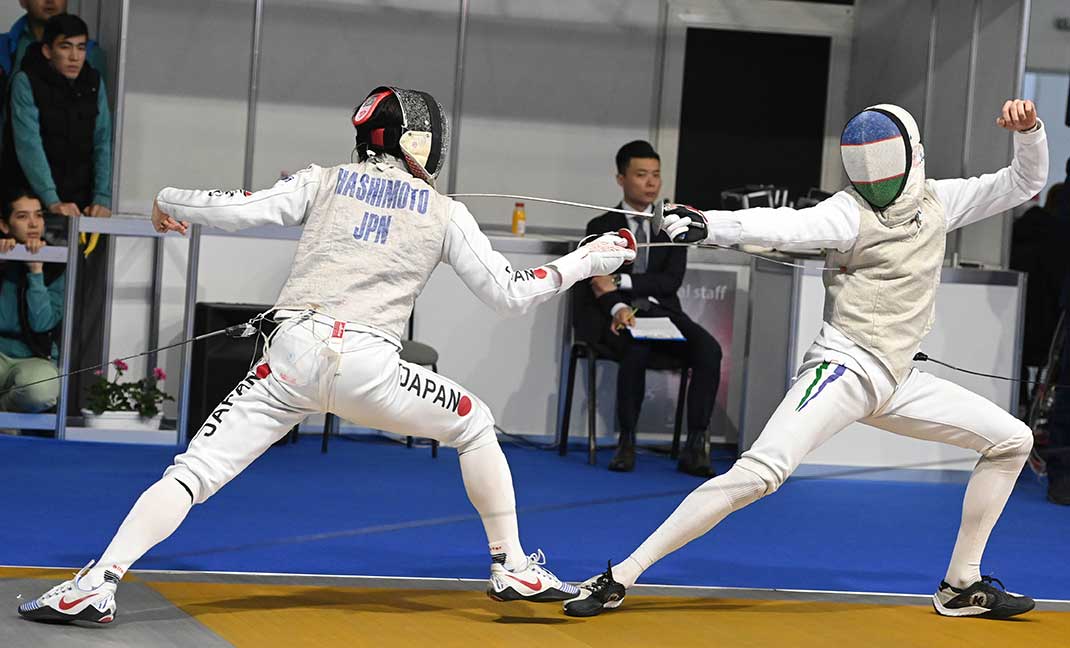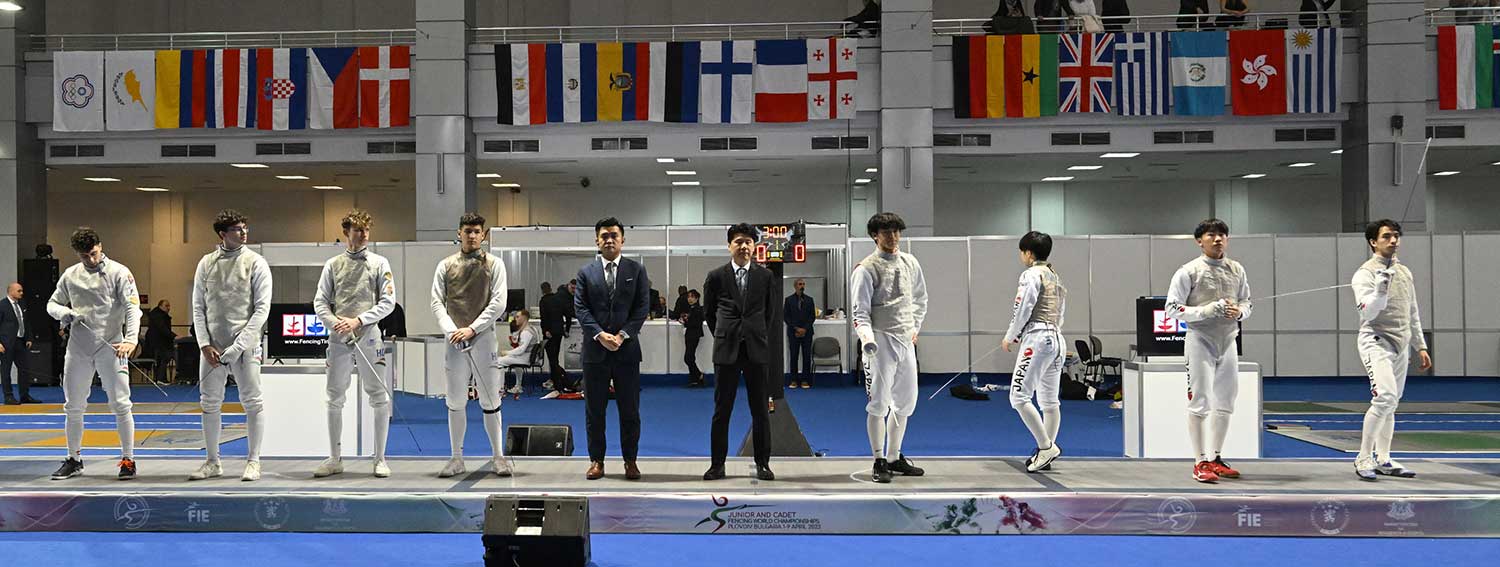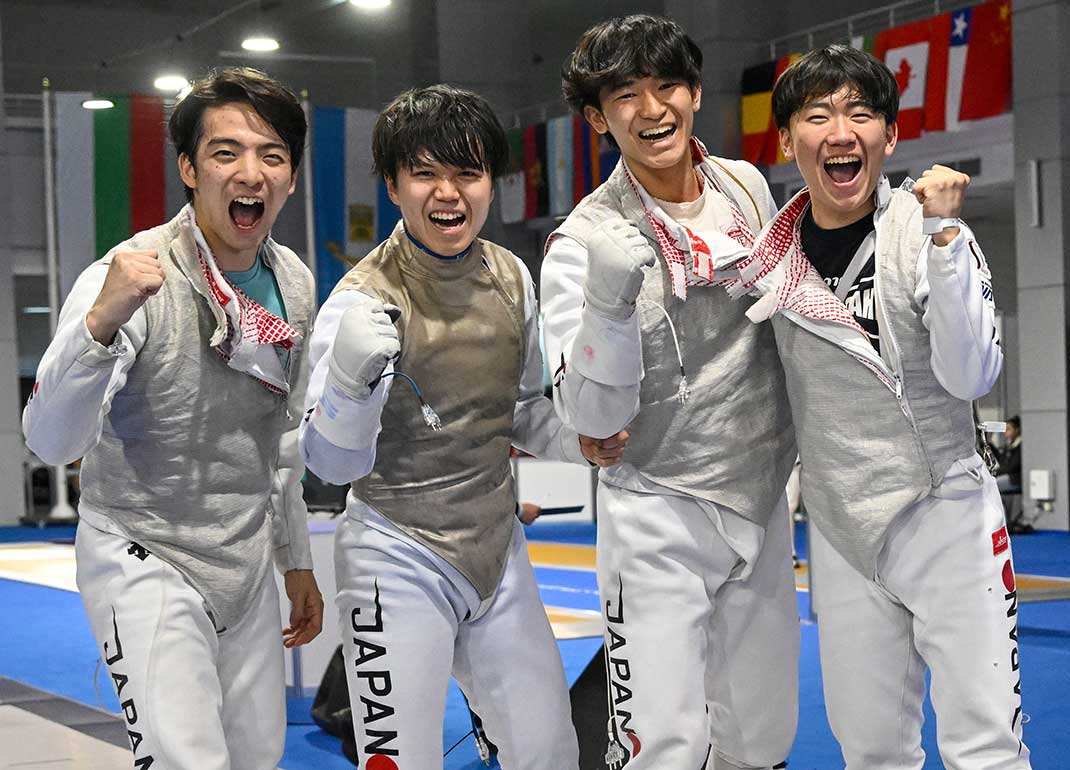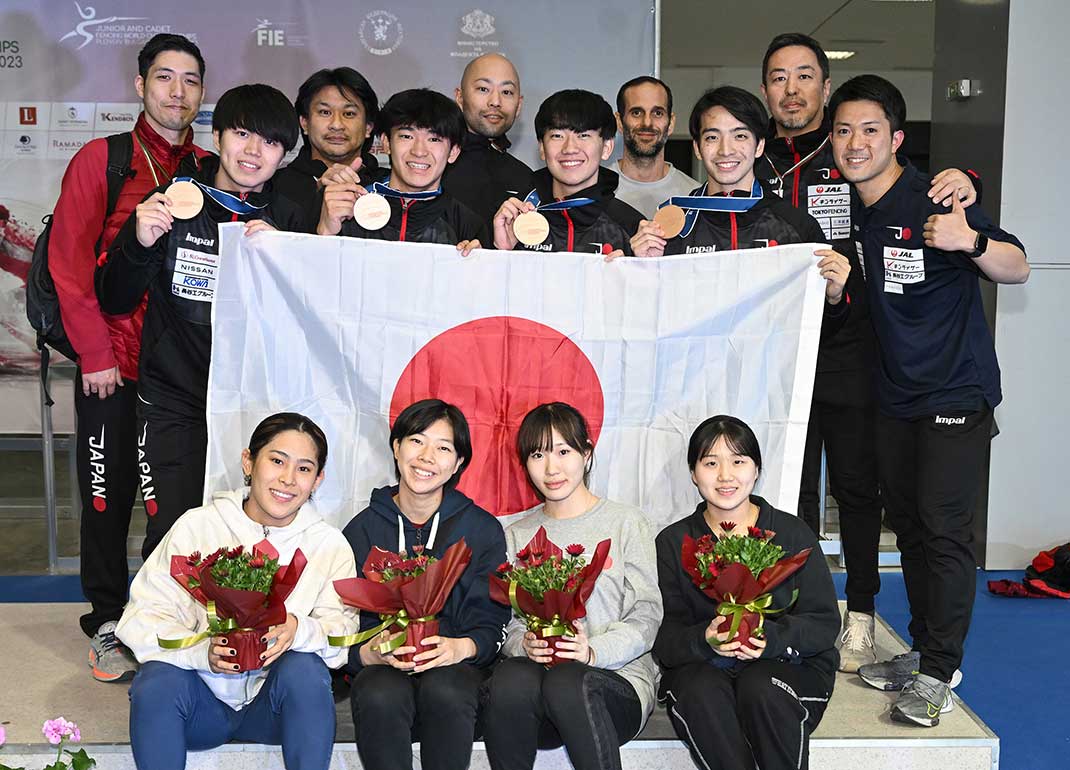Apr 19, 2023
Shoei Hashimoto of Rikkyo’s fencing team wins bronze medal in junior men’s team foil at Junior and Cadet Fencing World Championships
Keyword:INFORMATION
OBJECTIVE.
Shoei Hashimoto of the fencing team of Rikkyo University’s athletic association shared the bronze medal with his teammates in the junior men’s team foil event at the Junior and Cadet Fencing World Championships, which were held in Bulgaria April 1-9 2023. Hashimoto, a second-year student at Rikkyo’s Department of Economics, College of Economics, also participated in the junior men’s foil event as an individual.
Epee
A fencer scores a point when any part of the opponent’s body is contacted with a thrust. If the two fencers contact each other simultaneously, they both win a point. Among the three events, this is the most straightforward.
Foil
In this event, which Hashimoto won, a fencer scores a point only when striking the opponent’s torso with a thrust. A fencer can earn a point only when the fencer has the right of way (offense).
Sabre
A fencer scores a point when contacting the opponent’s body with a thrust or cut. This is a dynamic event, because a fencer can win or lose instantly.

Hashimoto, left. ©Japanese Fencing Federation/Augusto Bizzi/FIE
In the third round, Hashimoto and the rest of the Japanese team beat the Uzbek team, against whom they had lost by a score of 45-26 at the Asian Junior and Cadet Fencing Championships 2023 in March.
Hashimoto did not take part in the semifinal against the U.S. team, but supported the team as a bench player. At one point, the Japanese team dominated the round with a score of 25-12, but the U.S. team struck back in the round’s latter stage to reverse the contest with a score of 40-37. The last match was fought between two ace fencers. The Japanese fencer played calmly to tie the game at 43-43, at one point, but eventually the Japanese team was defeated.

During the bout against Hungary. ©Japanese Fencing Federation/Augusto Bizzi/FIE

Hashimoto, left, and his team members. ©Japanese Fencing Federation/Augusto Bizzi/FIE

©Japanese Fencing Federation/Augusto Bizzi/FIE
Suda won all five individual bouts in the qualifying round of pools, but lost in the first bout in the final tournament. She finished 65th. Suda also joined the team event, but lost in the first round against Ukraine, and was ranked 24th.
Comment
Department of Economics, College of Economics
Shoei Hashimoto
This Junior and Cadet Fencing World Championships is the last one for me became of the age limit of 20 or younger. I lost in the first round of the individual event because I was not able to achieve my usual level of performance.
After losing, I thought that I could not end like this at this championship, which I had always dreamed of attending and was able to at last take part in. This strong determination helped me get rid of the negative feeling and concentrate on the team event two days after.
As a result, the team was able to win comfortably against second-ranked France and avenge its defeat by Uzbekistan in the Asian Junior and Cadet Fencing Championships 2023. But in the semifinal, I was not able to join the match and instead supported the team as a bench player. I did what I could do for Japan, but at the same time I was full of regret. But I took part in the 3rd place playoff to win the bronze, enabling me to finish my last junior championships in good shape.
It was a very happy and enjoyable experience to be able to compete with fencers from around the world together with outstanding Japanese fencers. I would like to thank everyone who has supported me along the way. I am very grateful. I will do my best to fulfill my dream, but I will always need your support.
(Photo: ©Japanese Fencing Federation/Augusto Bizzi/FIE)